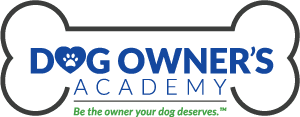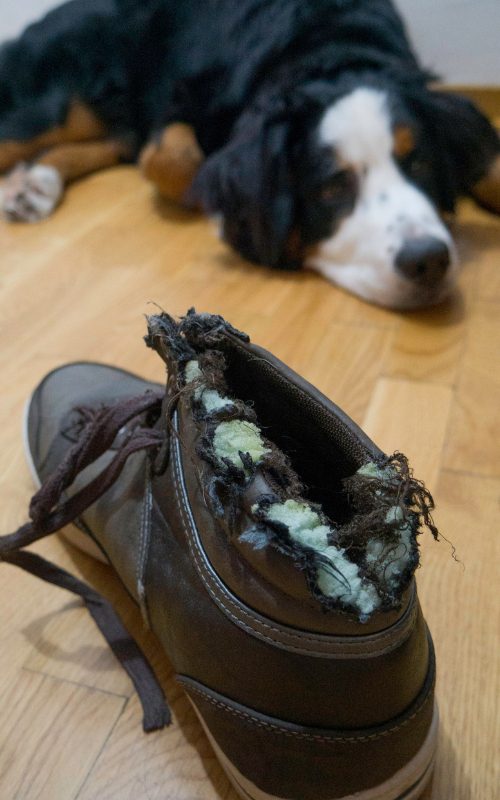From Chewed Shoes to Perfect Peace: Training Your Dog to Respect Your Belongings
The Problem With Chewing
Nothing can be more frustrating than coming home to a scene of chaos – your favorite pair of shoes destroyed, furniture gnawed on, or your television remote chewed beyond recognition. More than just an annoyance, destructive chewing can be both costly and dangerous for your dog. Even more frustrating is the elusive nature of the act; you hardly ever catch your dog in the middle of the destruction.
Our Track Record: Teaching Dogs Better Habits
With close to 5,000 dogs trained since 2008, we’ve worked with thousands of dog owners just like you to transform their troublesome pets into well-behaved companions. Our experience includes helping dogs break their destructive chewing habits, preserving both your belongings and your peace of mind.
Understanding The Causes of Chewing
Contrary to popular belief, destructive chewing isn’t always a sign of boredom or teething. It’s a complex behavior that can stem from various underlying issues. Our training approach involves identifying the root causes of your dog’s behavior. This allows us to not only correct the behavior but also eliminate its causes, ensuring lasting improvements.
Customized Training To Suit Your Needs
We tailor our training to fit both your lifestyle and your dog’s personality. Our aim is not to instill fear but to foster understanding and respect between you and your dog. Start your journey with us today by scheduling a free in-home consultation.
The Cost of Destructive Chewing
Chewed furniture, ruined shoes, and broken household items can quickly add up, making destructive chewing one of the most expensive issues dog owners face. Not to mention, dogs risk injuring themselves or ingesting harmful substances during their chewing sprees. With our help, you won’t have to resort to crating your dog every time you leave the house.
A Future Free From Destructive Chewing
Imagine the relief of knowing that your belongings are safe from your dog’s jaws. No more worries about forgotten items left within their reach, or unexpected veterinary emergencies due to swallowed objects. By teaching your dog to distinguish between their toys and off-limits items, we can create a stress-free environment for both of you.
Schedule Your In-Home Consultation
Reach out to us today and let’s transform your dog’s destructive habits into safe and satisfying playtime.
Opening Hours
M-Sa: 10am - 7pm
Address
1111 Central Ave., Charlotte, NC 28204
Phone
844 864 3647


